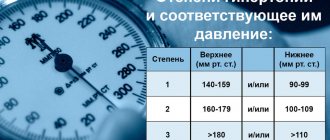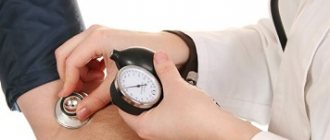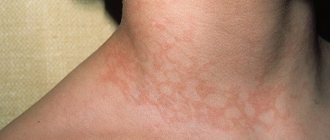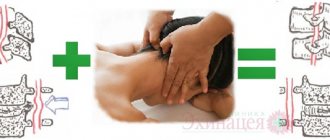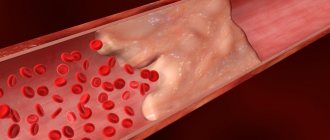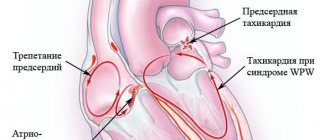Up to 40% of the population of Russia and Ukraine experience the need for treatment of hypertension. These are people whose blood pressure is above 140/90. Our countries have the highest mortality rate from cardiovascular diseases in Europe. Unfortunately, No more than 15% of patients with hypertension receive full treatment. This is because most people with high blood pressure are not even aware of the problem. If hypertension is left untreated, the patient's risk of death from heart attack, stroke, or kidney failure increases., and life expectancy is reduced by 5-10 years. Therefore, study the information about the treatment of hypertension that is presented on our website, at least for prevention. Here you will learn everything you need to normalize your blood pressure and prolong your active life:
- Hypertensive crisis: prevention and emergency care;
- How to choose an inexpensive and high-quality tonometer to measure the pressure of yourself and your relatives at home;
- How to lower blood pressure with a properly selected diet, without the use of drugs;
- Effective and safe treatment of arterial hypertension with vitamins and minerals;
- How doctors help normalize blood pressure for special groups of patients: elderly people and pregnant women.
Who is at risk for developing hypertension?
Hypertension rarely develops in people under 30 years of age. If a young person’s blood pressure is persistently elevated, then this is a sure sign of a serious illness: most likely damage to the kidneys or adrenal glands. Risk factors for the development of hypertension and cardiovascular disorders in middle-aged people:
- Obesity
- Smoking
- Frequent stress at work or in the family
- Poor cholesterol blood test results: too much “bad” cholesterol and not enough “good” cholesterol.
While hypertension occurs at the initial stage, i.e. blood pressure is increased to no more than 160/100 mm. Hg Art., this dangerous disease can rarely be diagnosed by changes in the patient’s well-being. This happens because the disease develops gradually, and the body has time to adapt. During this period, patients usually have no symptoms at all. However, with a blood pressure level of 140/90 - 160/100 mm. Hg Art. internal organs are already working under increased load. Because of this, they “wear out” faster. There is an increased risk that one of the body's life support systems will suddenly fail.
Arterial hypertension: answers to your questions
— Is it possible to define arterial hypertension?
- Currently, no. In practice, blood pressure (BP) exceeds 139/89 mmHg. Art. for six hours a day is an absolute basis for the diagnosis of “arterial hypertension.” However, I note that over 40 percent of heart attacks and strokes occur in people with lower blood pressure levels. In addition, the variability of numbers, that is, fluctuations in blood pressure during the day, is of extreme importance. Not lowering blood pressure at night is sometimes more important than absolute numbers. On the other hand, can a condition that is characteristic of 20% of people under the age of 40 and increasing blood pressure figures by 10% every decade until the age of 60-70 be considered a disease? After 70 years, the number of hypertensive patients begins to decline; people with an ideal blood pressure level of 110/70 mm Hg live to be 100 years old. Art. In the 21st century, arterial hypertension is not considered a characteristic of aging. In the overwhelming majority of healthy “normotonic” people, blood pressure increases slightly until the age of 50. Then the lower, diastolic pressure begins to decrease slightly, and the upper, systolic pressure, can gradually increase. An increase in each of these indicators, or a difference between diastolic and systolic (pulse) pressure, or a change in two or three indicators at the same time is considered hypertension.
— Is arterial hypertension an asymptomatic disease?
- Yes. In a significant number of hypertensive patients, an increase in blood pressure does not cause a change in well-being. Headache is more often the fate of hypotensive patients. Clinical signs of arterial hypertension, unfortunately, are a manifestation of complications: crisis, damage to the blood vessels of the kidneys, brain, heart.
— How high is the prevalence of high blood pressure in families?
—High blood pressure is very common in some families, and many people have first-degree relatives with hypertension. However, in such cases, the cause of arterial hypertension is not always a family predisposition. Only in a small number of cases is the cause of high blood pressure inherited, and scientists have identified a combination of many genes “culprit” for this. But in most cases, heredity is unlikely to be responsible for the occurrence of arterial hypertension.
— Is it necessary to control blood pressure in children?
—High blood pressure is common among adults, and measuring blood pressure in all children is not recommended. However, in families in which there are rare forms of arterial hypertension, and in families where arterial hypertension has previously been identified in children and adolescents, it makes sense to monitor the children's blood pressure. It should be noted that in girls taking oral contraceptives, blood pressure should be monitored regularly.
— What is white coat hypertension?
- This term refers to a situation when a person’s blood pressure increases during a visit to the doctor, but in everyday life the blood pressure is within the normal range. Typically, hypertension is diagnosed during a clinic visit, and then blood pressure is assessed over the next 24 hours at home (called ambulatory blood pressure monitoring). Unfortunately, white coat hypertension is a common precursor to arterial hypertension. It is important to realize that everyone's blood pressure is slightly lower when measured at home, even in patients with hypertension, and that this should be taken into account.
— Can lifestyle changes lead to lower blood pressure?
- Undoubtedly, lifestyle changes lead to lower blood pressure, for example, weight loss, reducing salt intake or alcohol intake. However, the results of applying the above methods are relatively modest. However, the combination, the sum of these changes can be very significant. Quitting smoking and increasing fruit consumption (at least 5 servings of greens, berries, fruits and vegetables per day), as well as increasing physical activity will help normalize blood pressure.
- Should I avoid exercise and stress?
— There is no exact data indicating that reducing stressful situations leads to a decrease in blood pressure. A little exercise is good for everyone, but you shouldn't do strenuous exercise without first talking to your doctor and checking your blood pressure.
— Is it possible to work if your blood pressure is high?
- In most cases, the answer is yes. In very rare cases, it is recommended to rest at home, for example, pregnant women, and sometimes even hospitalization is indicated. There are some professions where you will not be allowed to go to work until your blood pressure normalizes (for example, airline pilots). However, in most cases, arterial hypertension does not require refusal to work.
— Is it possible to get pregnant if I have high blood pressure?
— In almost all cases, the answer is yes. You may need to change your treatment regimen before you become pregnant, as some medications should not be used during pregnancy, and your doctor may advise you to see a hypertension specialist. In some cases, it is reasonable to achieve blood pressure control before pregnancy.
— Is it possible to cure arterial hypertension?
— In the vast majority of cases, hypertension cannot be cured and long-term therapy is required throughout life. The goal of treatment is to lower blood pressure and therefore reduce the risk associated with hypertension. Stopping treatment leads to a rapid increase in blood pressure.
— Are there advantages to various medications for the treatment of arterial hypertension?
— Currently, there are seven main groups of drugs for lowering blood pressure. In terms of the intensity of the long-term effect on blood pressure levels, none of them has advantages. When choosing a medicine, combination and dosage schedule, the doctor is guided by the following principles:
prevent dose-dependent side effects;
with high numbers or stability of blood pressure, the choice, as a rule, is a combination of two, three, or even more drugs rather than increasing the dose;
taking into account individual circumstances (gender, age, profession, etc.) and concomitant conditions (pregnancy, combination of arterial hypertension with diabetes mellitus, obesity, atherosclerotic vascular disease, heart failure, etc.).
— Do medications cause side effects?
— There are no medications that do not have side effects. Most modern drugs are well tolerated by patients, and only a small number of patients experience problems. Sometimes the side effects are quite severe, and in such cases a change in treatment is necessary. As with any treatment, it is important to evaluate the expected success of treatment and the risks associated with prescribing a particular drug. All medications are currently accompanied by detailed instructions, which indicate all side effects, even those that occur in extremely rare cases.
— Do herbal medicines reduce blood pressure?
— There is no evidence obtained in placebo-controlled studies indicating that herbal medicine lowers blood pressure and reduces the risk of strokes and myocardial infarction. However, antioxidants and fish oil may slightly lower blood pressure and may therefore be beneficial. However, they cannot replace a healthy diet rich in fish, fruits and vegetables.
— What is the goal of treating arterial hypertension?
— Of course, an achievable goal is to reduce the risk of developing its complications: heart weakness, atherosclerotic vascular damage. The way to achieve this is to establish effective control over blood pressure levels and achieve “target values”.
— What is the effectiveness of treatment for arterial hypertension?
— The answer is the result of a study conducted in a number of regions of Russia in recent years - the fulfillment of two conditions: the availability of medicines and the establishment of trusting contact with a doctor who guarantees adherence to treatment and changes in lifestyle, allowed 93% of people included in the project to achieve the target within a year blood pressure level.
article from the site https://cmphmao.ru/node/1845
Is it possible to cure hypertension without giving up the joys of life?
Why do the measures that doctors usually recommend so rarely help? Because doctors' advice is often too difficult to implement in real life. Doctors recommend that patients voluntarily give up most of the joys of their lives. Naturally, patients are in no hurry to do this.
| Traditional recommendation for patients with hypertension | Why is it difficult to do? |
| Reduce stress levels at work and at home | To do this, you need to retrain or accept a decrease in income |
| Avoid fatty and salty foods and limit caloric intake | You'll have to go hungry all the time |
| Exercise outdoors | If after work there is also physical education, then when will we live? |
It is also good if a hypertensive patient swallows the pills prescribed to him in a disciplined manner every day. At best, they will delay the onset of target organ damage for several years. But, as a rule, you still don’t have to wait too long for a heart attack or stroke. Please note that this is actually beneficial for the state, because the number of pensioners is reduced, as well as the period during which they have to pay their pensions. What to do? Is there really no effective way to get your blood pressure under control and prolong your life? It turns out there is. Moreover, this wonderful method does not bring suffering to patients, quite the contrary. So, we have established and tested on dozens of patients that the best method of treating hypertension is limiting carbohydrates in the diet. A low-carbohydrate diet helps almost 100% of patients with hypertension, in whom this disease is combined with obesity or type 2 diabetes.
Cure from hypertension in 3 weeks - it's real! Read here:
- The best way to cure hypertension (quickly, easily, healthy, without “chemical” drugs and dietary supplements)
- Do you have hypertension + insomnia + irritability? This is a deficiency of magnesium in the body!
- Hypertension, its causes and how you can eliminate them
It turns out that you can eat your fill of meat, fish, fatty poultry, eggs, butter, etc. - and have normal blood pressure of about 120-130/80, as well as excellent blood cholesterol levels. Many patients don't believe this is possible at first because it seems "too good." However, it is true. In a few weeks, you will see for yourself that you can eat tasty and satisfying meals, and at the same time your blood pressure will normalize. Take blood tests for cholesterol and you will see that your levels are also improving. This means that the “new life” can be safely continued. Since on a low-carb diet you will feel full and satisfied all the time, there will be no reason to “break down” and return to your old diet.
Low-carbohydrate diets (Dukan, “Kremlin” and Atkins) are triumphantly marching across the country, despite the desperate resistance of “official” medicine. They bring the most benefit to people suffering from:
- obese
- type 2 diabetes
- epilepsy.
- ...and at the same time they quickly normalize blood pressure.
Why are doctors so resistant to promoting these diets? Because they promise millions of dollars in losses for drug manufacturers, and many doctors will soon be left without work. But for patients, this is an excellent opportunity to prolong their lives and be free from serious illnesses. Attention! This method is not suitable if you have “secondary” hypertension caused by some other “primary” disease. For example, progressive renal failure or adrenal tumor. In such cases, hypertension does not respond to conventional treatment. It will go away only when the doctor identifies and treats the primary disease. This applies to no more than 5-10% of patients from their total number. If you already have kidney failure, liver problems or serious diseases of the gastrointestinal tract, use only in consultation with your doctor and under his close supervision. Limiting carbohydrates in the diet is not recommended for pregnant women.
Treatment methods for hypertension
The main goal of treating hypertension is to reduce the risk of developing the most dangerous complications (stroke, myocardial infarction, chronic renal failure and nephrosclerosis). To this end, measures are being taken to reduce blood pressure to normal levels and reduce the vulnerability of target organs. The patient needs to be prepared that antihypertensive therapy will be carried out for life. The course of treatment at stages II and III of the disease necessarily includes drug therapy. Treatment of stage I hypertension may not require medications, but may be limited only to non-drug therapy methods. In any case, non-drug therapy for hypertension is very important.
A patient with hypertension should regularly measure blood pressure and follow all instructions of the attending physician.
Which doctor treats hypertension
A cardiologist treats hypertension. Also, treatment of hypertension can be carried out by a general practitioner (general practitioner or family doctor), who often detects high blood pressure when contacting him with complaints of poor health.
Drug therapy
Medicines should be selected by a doctor, who does this taking into account the individual characteristics of each patient.
Lifestyle change
First of all, you need to:
- stop smoking;
- eliminate or reduce alcohol consumption;
- try to reduce weight to normal;
- reduce salt intake to 5 g/day;
- provide regular physical activity. The most beneficial are walking, swimming and therapeutic exercises;
- increase your resistance to stress;
- optimize nutrition (eat more greens, fruits, foods with a significant content of potassium, calcium and magnesium, and, conversely, reduce the consumption of vegetable fats and protein foods). You should eat regularly.
Make an appointment Do not self-medicate. Contact our specialists who will correctly diagnose and prescribe treatment.
Surgical intervention
For many people, the answer to the question “how to get rid of hypertension forever” is surgery. But even with high-quality and timely intervention, it is necessary to maintain a healthy lifestyle, otherwise everything will quickly return to its place. Surgery is often used in severe cases of blockage of blood vessels, in which there is no effect of drug treatment.
In surgery, the 2 most common methods of intervention are used:
- Percutaneous angioplasty. The essence of this operation is to insert a catheter with a balloon into the vessel to improve its conductivity. The procedure is contraindicated for people whose artery passage is too narrow or if it is completely blocked. In rare cases, a vessel may rupture during catheter insertion.
- Open surgery. Unlike percutaneous angioplasty, this type of surgery is more traumatic. The patient will have to spend a lot of time under anesthesia and the recovery period will be much longer. The essence of the open operation is to remove the plaque that appears along with a piece of the vessel. An artificial or your own transplanted vessel will take its place. Thanks to this procedure, it is possible to effectively treat hypertension, since it will be possible to restore damaged arteries. This is especially true for extensive atherosclerosis.
Therapy of nephrogenic hypertension
Arterial hypertension is not always a consequence of impaired metabolism, vascular and heart diseases. Sometimes the problem is hidden in the kidneys.
This type of disease is called nephrogenic hypertension. It occurs due to neoplasms, vascular diseases, birth defects and inflammatory processes in the kidneys.
Treatment of nephrogenic arterial hypertension is based on the cause of the disease.
To eliminate inflammation, Ceftriaxone or Gatifloxacin are used. Neoplasms and congenital anomalies are eliminated through surgery. Simultaneously with eliminating the cause of nephrogenic arterial hypertension, it is necessary to control the pressure and take antihypertensive drugs to stabilize it.
Prevention
Methods for preventing the disease are primary and secondary.
Primary prevention is necessary for healthy people who are predisposed to pathology. You need to go in for sports, fitness, do morning exercises, swim. It is important to consider that the loads should be moderate or light. A person also needs to give up bad habits, limit the consumption of salt, carbohydrates and animal fats. The diet should be enriched with calcium and potassium (dairy products, nuts, dried fruits, etc.).
Secondary prevention is carried out in patients who have been diagnosed with hypertension. It includes monitoring blood pressure, regular visits to the doctor and non-drug therapy. It is recommended to conduct acupuncture sessions, massage, and take herbal remedies and antioxidants.
The ABC-Medicine clinic provides a full range of services for the diagnosis, prevention and treatment of hypertension. Call us at + and our consultants will answer all your questions in detail and make an appointment with a cardiologist.
Diagnostics
The diagnosis of hypertension is based on monitoring blood pressure at home (during exercise and at rest). You can monitor your blood pressure using automatic or manual pressure gauges.
When diagnosing hypertension in the clinic, the following is carried out:
- detailed questioning of the patient, accurate recording of all risk factors, the doctor identifies predispositions to the disease;
- clinical examination (the doctor measures the person’s pulse and blood pressure);
- daily monitoring of blood pressure (prescribed if necessary);
- conducting Holter monitoring, performing an electrocardiogram;
- determining the stability of blood pressure levels, minimum and maximum numbers, the effects of medications, etc.;
- consultations with a nephrologist, neurologist, endocrinologist;
- laboratory diagnostics (general analysis and biochemistry of blood and urine, levels of sodium and calcium, phosphates and uric acid, plasma potassium, etc.);
- chest x-ray;
- Ultrasound of the kidneys, heart;
- diagnostics using bicycle ergometry, load tests (if necessary).



